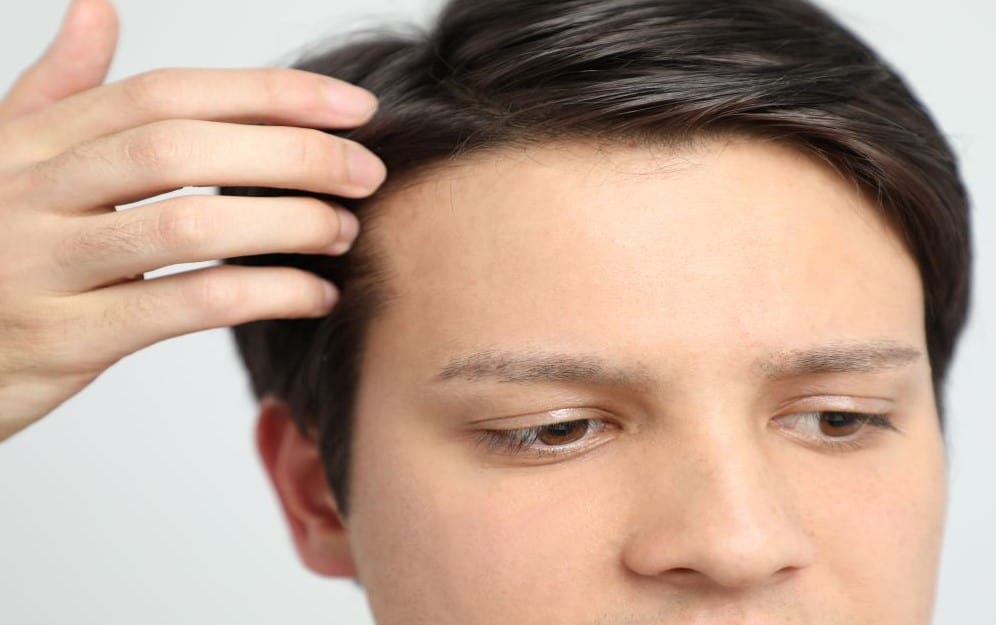Hair loss is a condition that affects thousands of Americans each year. Both men and women are affected by thinning hair. If you’ve noticed your hair thinning and have considered treatment, it’s best to know the causes of hair loss and the treatment options so you can make the best decision for your body.
Types and Causes of Hair Loss
Various issues can cause hair loss; it can come on gradually or suddenly, affecting your scalp or, in other cases, your whole body. Common types of hair loss include:
- Gradual thinning is most commonly noticed on the top of the head and is usually brought on by aging. For men, hair tends to recede at the hairline; Women tend to see a broadening part on the top of their hair.
- Bald spots can be centrally located on the scalp or patchy; they can also affect facial hair or eyebrows. This can be a cause of hormonal changes in the body or types of alopecia.
- Sudden hair loss can result from medical treatment such as chemotherapy or extreme emotional or physical trauma. This type of hair loss is often temporary.
When Should I Seek Medical Help?
You should see your doctor if you have any concerns about your physical health. If you are distressed or concerned about hair loss and want to pursue treatment, talk with your doctor about all the available options; pursuing treatment early often allows you to avoid significant permanent hair loss or baldness.
If you notice sudden patchy hair loss or more than usual hair loss when combing or washing your hair, it could signify an underlying medical condition that requires treatment. Hair loss can result from genetics, hormonal changes, and even a side effect of some medications. However, it’s harder to treat accurately without knowing the root cause of the problem; that’s why it’s always best to check with your doctor before pursuing any hair restoration treatments.
Hair Loss Treatment Options
Once you’ve determined the cause of your hair loss, your doctor can help you determine which treatment plan is best for you. Here are some popular options.
Medication
There are a variety of medications that your dermatologist can prescribe to treat male and female pattern baldness. These usually require a blood test as well as a physical examination. Medications have been proven effective in treating hair loss but often have side effects. Discuss this with your doctor before starting any treatment.
Surgery
Some people opt for a surgical solution for hair loss. Hair replacement procedures such as hair transplantation, micro-grafting, slit grafting, punch grafting, and scalp reduction are all possible solutions. The results of these procedures depend on the type of hair loss and the patient’s body chemistry. Although surgery can be productive, it is an invasive procedure with a lengthy recovery time.
PRF Hair Restoration
Platelet Rich Fibrin (or PRF) hair restoration is a non-surgical procedure that utilizes your body’s growth factors to stimulate collagen production, tissue regeneration, and hair regrowth. PRF is a natural product of your blood, so it’s highly effective and unlikely to be rejected by your body. During this treatment, a blood sample is extracted from your arm and placed in a centrifuge to isolate the Platelet Rich Fibrin. Then the PRF is injected into your scalp or the area you’d like treated. This process increases blood flow and uses the body’s natural healing process to encourage hair growth. Patients appreciate PRF because it’s non-surgical, effective, and comes with no side effects.
Is Hair Restoration Treatment Right For Me?
You are the only one who can determine if a cosmetic procedure is best for you. Once you have talked with your doctor to determine the cause of your hair loss, and decided to pursue treatment, the next step is choosing the right practitioner. At Contour Aesthetics + Wellness, we prioritize excellence in patient care and precision in treatment. We pride ourselves on open communication and establishing realistic expectations for treatment; we will examine the area you’d like to have treated and speak with you honestly about your treatment options and possible results. Contact us today to schedule your consultation, and we can answer all your hair restoration questions.


